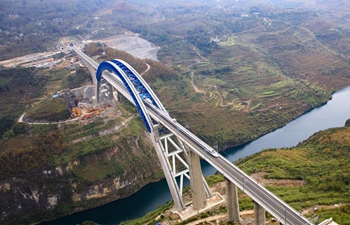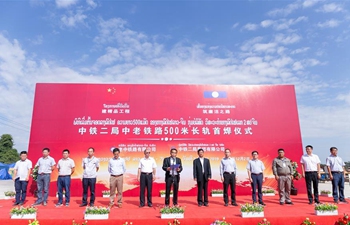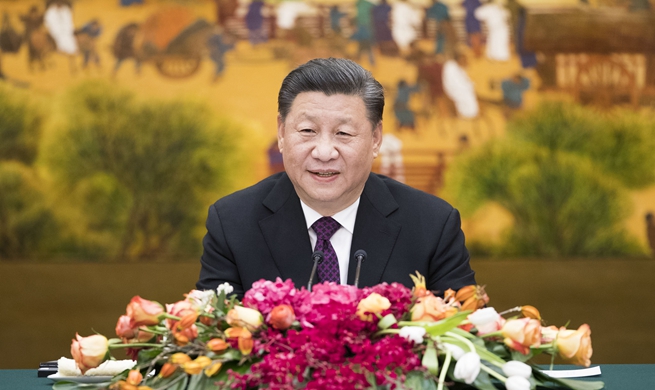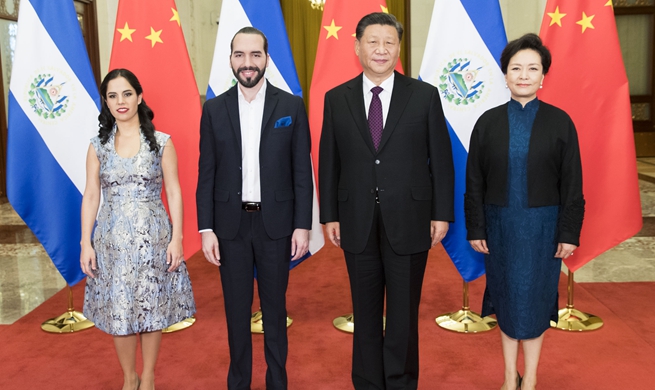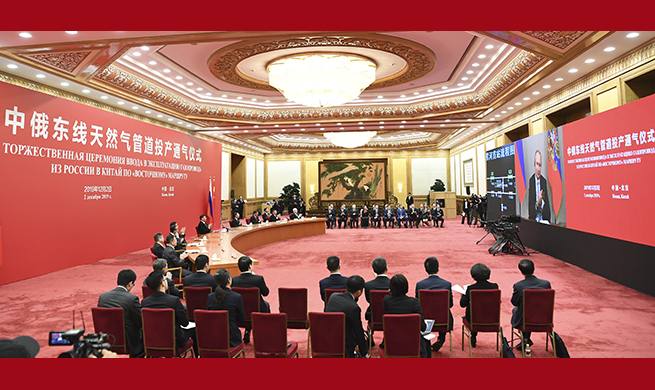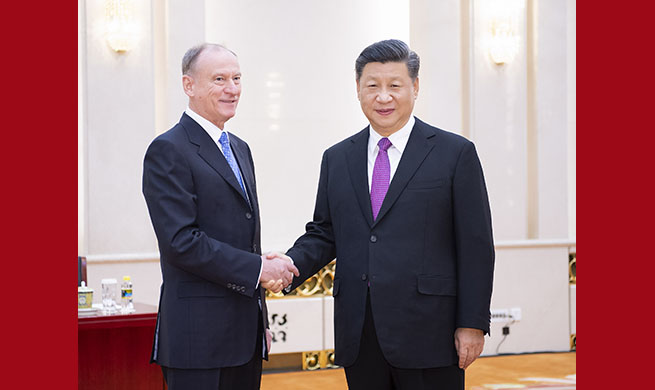MOSCOW, Dec. 3 (Xinhua) -- The China-Russia east-route natural gas pipeline began operation on Monday and is set to propel bilateral cooperation in the energy sector, providing a significant boost to both sides.
Chinese President Xi Jinping took part in a video call with his Russian counterpart Vladimir Putin on Monday, as the two heads of state jointly witnessed the launch ceremony of the pipeline.
"The east-route natural gas pipeline is a landmark project of China-Russia energy cooperation and a paradigm of deep convergence of both countries' interests and win-win cooperation," Xi told Putin.
Putin said the launch has lifted bilateral strategic coordination to a new level.
The pipeline is scheduled to provide China with 5 billion cubic meters of Russian gas in 2020. The amount is expected to increase to 38 billion cubic meters annually from 2024, under a 30-year contract worth 400 billion U.S. dollars signed between the China National Petroleum Corp and Russian gas giant Gazprom in May 2014.
The pipeline has a 3,000-km section in Russia, known as the Power of Siberia, and a 5,111-km stretch in China.
"The interaction of the two countries will give a powerful impetus to the development of their economies and improve the quality of life," said Alexei Grivach, deputy director general for gas issues of the National Energy Security Fund.
"The Power of Siberia enables Russia to achieve many goals: to develop a new resource base, build infrastructure conducive to the socio-economic development, implement major investment projects in the field of gas processing, and get the opportunity to make chemical products," Grivach said.
The project will allow Russia to expand its supply of natural gas to the most dynamically developing market in the world, the energy expert said.
It will also enable China to gain access to stable Russian pipeline deliveries and to meet growing needs, he added.
The pipeline will diversify Russia's gas market while providing China with an alternative steady gas supplier, said Alexei Belogorey, deputy executive director on energy studies at Russia's Institute for Energy and Finance Foundation.
Regarding Russia-China energy cooperation, Belogorey said Chinese companies have already participated in the Yamal liquefied natural gas (LNG) project in Arctic Russia and the Arctic LNG-2 project, the two largest of their kind in Russia. Scientific and technological cooperation is also underway.
The two countries can jointly tap potential markets and "Russian companies could also build gas transmission grids and underground gas storage in China with their unique expertise in the field," Belogorey said.

